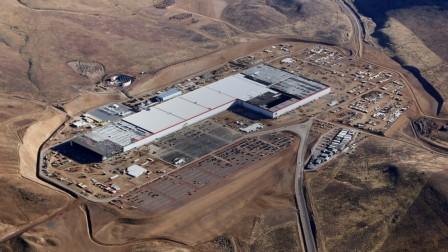Tesla says the Model Y is coming in 2020

oxconn is even more aggressively cutting back its growth ambitions around the world than we previously thought. In addition to the news yesterday that Foxconn intends to scale back its plans for a $10 billion factory in Wisconsin, leaving that state in something of a lurch, we have now learned that the Taiwanese company intends to scale back a $9 billion factory in Guangzhou, according to the Nikkei Asian Review citing internal documents. It lists trade war fears and a macro slowdown as the cause.
We talked about the lessons for economic development yesterday, but there is another angle around manufacturing flexibility that is critical to understanding this news.
A few weeks ago, I interviewed Dave Evans, who is building a startup called Fictiv, which is a “a contract manufacturer that doesn’t own any machines.” He thinks about manufacturing “more like cloud computing” where you can “scale up and down production as you would with AWS or a load-balancing server.”
In a world filled with fast-moving political eddies and fickle consumer demand, Evans ardently advocates for manufacturing flexibility. “No one is talking about how to build a supply chain that is agile enough to deal with different geopolitical climates,” he said. In today’s world, “supply chain planning is years or sometimes decades out” and yet, “if I look at policy or governments, or nascent trade agreements, that tends to be on quarters.”
Flexibility is ultimately about resilience. Faster adaptation allows companies to increase profits and reliability. “If you are going to build a robust business that lasts, then you need to have robust supply chains,” Evans said. You “don’t want to be a company that is a ping-pong based on the mood of Trump’s tweets.”
A huge part of what Fictiv is attempting to do as a startup is to offer that flexibility as a service. According to its website, the company has produced more than 3 million parts and can have turnaround times in some cases as short as a day. As I pointed out yesterday, it is these part ecosystems that often prove the biggest barrier to (re)launching manufacturing back in the United States.
Manufacturing flexibility is something that Chinese factories have prioritized for years. As an email correspondent with knowledge of these supply chains for large consumer companies discussed with me, China’s biggest strength may not be the ecosystem that has developed around Shenzhen and in Guangzhou, but actually the ability to scale up and down manufacturing by tens of thousands of workers in a week.
Foxconn, perhaps more than any manufacturer, has learned the importance of that skill. Its very survival is predicated on its ability to quickly adjust — at a scale of hundreds of millions of units — to the changing needs of its partners. When the economics of its plants don’t make sense, they shut them down, immediately. That may not be a positive for Wisconsin, but it is the competitive edge that America has lost over the years against much more flexible international competitors.









Most Visited
It’s always been hard to reconcile the dreams of portability with power in a gaming laptop.
Devices built on Nvidia's Tegra X-1 mobile processor are at risk of attack from a flaw security r
Google has introduced new methods, an updated user interface and other changes through which 2-st